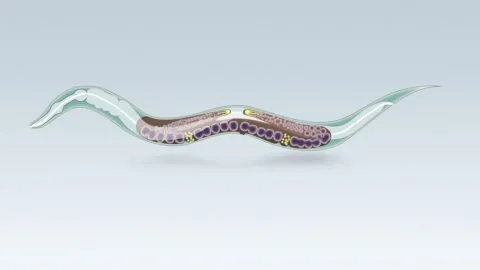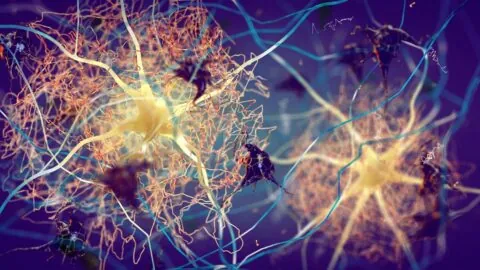May 05, 2025
In Aging Cell, researchers have explored how transcription factor EB (TFEB) promotes proteostasis in a common aging model. Maintaining protein function Why We Age: Loss of ProteostasisThe loss of proteostasis is the failure of the protein-building machinery of the cell and the accumulation of misfolded proteins, which is one of the root causes of age-related...
July 28, 2024
Research published in Aging Cell has revealed that a nematode species commonly used for aging research lives much longer on an alternate-day fasting regimen, but only when it is administered in middle age and only when the worms are consuming an animal-based protein source. Deciding what to restrict and when Dietary restriction practices have been...
April 22, 2024
With an in-depth examination tool in hand, researchers publishing in Aging have done a preliminary examination of the muscle protein differences between younger and older people and how older people's proteins change with exercise. The power to take a close look This paper begins with a discussion of proteomics, the science of analyzing what proteins...
October 22, 2023
A pair of neurologists have published a review in Cell discussing the current state of Alzheimer's therapies, including drugs in early development, treatments in clinical trials, and therapies that are prescribed today. The -mab drugs Monoclonal antibodies, drugs whose names end in -mab, have become the go-to approach for pharma companies seeking to develop anti-Alzheimer's...
April 03, 2023
A paper published today in Nature Aging describes how cold temperatures stimulate the production of PA28γ, a protein that appears to increase lifespan in worms and cells. An explanation for a commonly held belief Cold temperatures have been associated with longevity for more than a hundred years [1]. The conventional explanation is that this is...
October 10, 2022
A preprint published in bioRxiv has shown the mechanisms by which cancer handles the protein dysfunction brought about by its own mutational load and how these mechanisms are different from ordinary proteostasis machinery. A highly variable burden Previous research has shown that tumors vary widely in their numbers of mutations. Some cells in a single...








